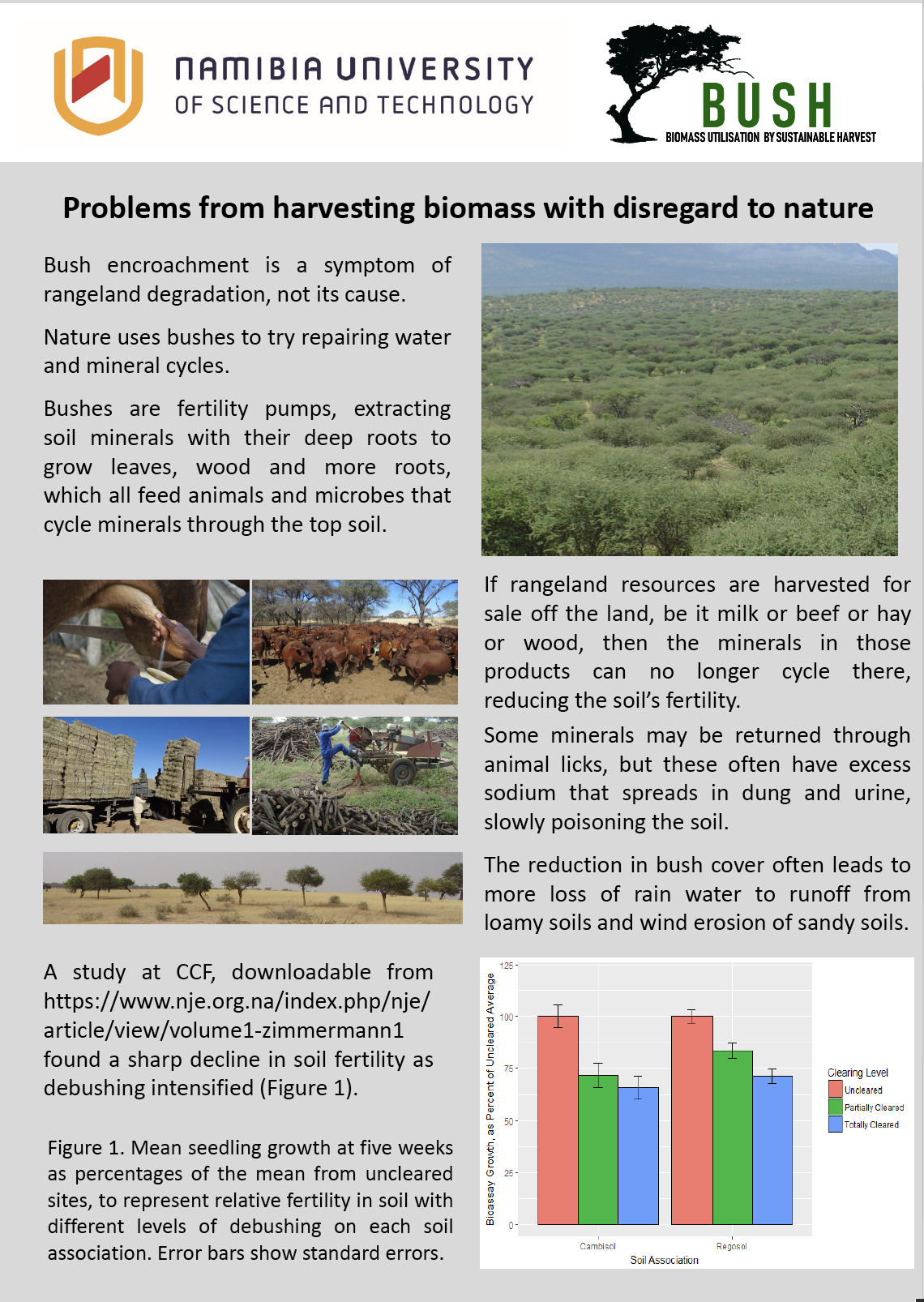Project Coordination:
Faculty: Faculty of Natural Resources and Spatial Sciences
Project Leader: Dr Ibo Zimmermann
Project Collaborators: Prof Pio Barone Lumaga
Strategic Partners:
o Namibia Biomass Industry Group (NBiG)
Namibia Biomass Industry Group (NBiG) is an industry organisation to serve and grow the Namibian biomass industry. They are a hub of biomass information and are actively involved in biomass and other industry related policy development frameworks.
o Cheetah Conservation Fund (CCF)
The Cheetah Conservation Fund (CCF) Technology centre is researching a wide range of biomass technologies with an emphasis on those that can generate sustained economic enterprises and will thus form a key partner in technology development.
o Conservation Agriculture Project, GIZ
The specific deliverables are:
This project stretches over a period of 2.5 years.
(1) To improve and/or develop a field sized Kon-Tiki burner,
(2) To source and produce 10x different biochar compositions which is conditioned by the charging with nutrients and/or inoculating with beneficial microbes,
(3) To test biochar impact on productivity / yield,
(4) To publish an assessment report with the biochar results from bioassays, laboratory and field tests, and the economic viability of biochar production from Namibian bush, and
(5) To publish an operational booklet on how to produce, condition and apply biochar from Namibian bush.
Various technologies are being applied to convert bush wood to charcoal aimed at the braai market, for which charcoal qualities differ somewhat from those best for biochar. A small Kon-Tiki burner aimed at biochar production has been experimented with in Namibia. Charcoal produced in commonly used kilns and retorts, and in a field-sized Kon-Tiki burner, would be assessed and tested for use as biochar, with and without conditioning. Charcoal will be produced in the Kon-Tiki burner as well as obtained from both local producers. The larger woody parts of harvested bushes will be converted to charcoal, while leaving the smaller small twigs and leaves of harvested bushes for possible processing in a bioreactor as another technology to be developed in a future project. All would then be tested through bioassays, laboratory analyses (including for heavy metals) and in farmers’ fields. Given the worldwide trends, biochar is likely to become a more profitable commodity than braai charcoal. Research and development on local biochar would identify appropriate technologies for Namibian farmers to be able to realise these potential profits, while the ecosystem functioning of soils where the biochar gets applied to would be enhanced. Socio-economic benefits and nutritional improvements from use of the biochar will be examined.
